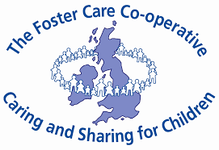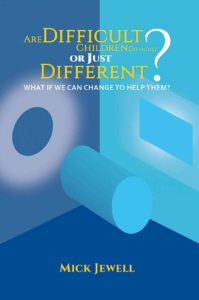 Mick has been a foster carer for the Foster Care Co-operative since 2007. In 2002, he and his partner Sian joined their families together – which in turn guided them towards caring for others. In 2017, he wrote his first book – ‘Are Difficult Children difficult, or just different? What if we can change to help them’ – on the subject of adapting to the needs of children in care. We caught up with Mick to find out what inspired him to take time out to write it. What inspired you to write the book? My reason for deciding to write a strategic publication on how adults working with or caring for children can change their approach to suit the differing learning and progression needs of a child in their charge, came mainly from a passion for building strategies for young people ‘outside the norm/realms’ of traditional teaching and parenting styles, which clearly cannot work for all. Who is the book aimed at? ‘Are Difficult Children difficult, or just different? What if we can change to help them’ is aimed at any adult involved with young people who do not present or behave in line with the majority of expected behaviours and traits in children aged between 5 and 16 years old. They are tried and tested example strategies that have evolved in focused programmes for a variety of young people – displaying what could be described by many as ‘difficult’ behaviour traits. The focus is on the adult changing their approach, in lieu of attempting to change the brain pattern of the ‘difficult child’ – bringing them in line with more traditional methods that quite simply do not work in the long term. Did you base the advice/guidance purely on your own experiences as a foster carer, or did you draw from other sources?
Having ‘looked after’ the 8 children in our long-term care as a full time Foster Carer (in addition to our five birth children – 13 in all!), I have enjoyed the reparation strategies involving areas of concern, including serious neglect, disorganised/insecure attachment disorders, sexual abuse, domestic violence and special educational needs. I have, over the years, extended my learning to become better qualified in understanding the traits and behaviours that are caused by Foetal Alcohol Spectrum Disorder (FASD), Autism, Asperger’s and the Human Brain. I have been directly involved in the organisation of conferences for Foster Carers, Adopters, Care and Medical Professionals, and have presented workshops on FASD, Complex Educational Needs & introducing strategies for children with behavioural issues. I regularly present the three day ‘Skills to Foster’ programme that is a mandatory part of the selection process for prospective Foster Carers and my role is very much to allow them to gain the ‘reality’, whilst they work alongside qualified Social Workers learning the legislation and logistics of the task. Two of our birth children (the oldest girl & youngest boy) along with two of our Fostered children have forged their pathways to attend University, whilst we have adult children currently serving as a Police Intelligence Officer, a Lance Corporal Paratrooper in the British Army (II Para), an RGN Nurse in ICU, a part-time removals man, a Call Centre operative and the Director of a Construction Company. We currently look after three children aged 12, 13 & 17 on behalf of their parents and the Local Authority, whom are all in Long Term Permanent placements here that commenced, 7 (the two youngest siblings) and 9 years ago respectively – all have a very different background story with extremely differing needs, behaviours, complexities, diagnoses and educational capabilities. As a running total I have parented children across approximately 120 years – I hope I do not look that old! I have also worked closely with at least four Head Teachers, three Virtual Head teachers, several Special Educational Needs Coordinators (SENCOs), numerous medical professionals and a large number of Parents, Carers and Adopters. They have consistently but independently voiced ‘you should write a book, Mick’, so I decided to finally take their advice! Was any of the subject matter hard to write, emotionally? It was obviously a very emotional process writing the book, but also extremely therapeutic and a great reminder of the successes and positive outcomes that all of the children continue to enjoy as children and well into their adulthood, still making mistakes, but able to review, assess and build on each experience. How long did it take you to write it? I penned the book across 6 months in 2017, approached Publishers in early 2018 and signed the Publishing agreement in May 2018. ‘Are Difficult Children difficult, or just different? What if we can change to help them’ is available to order now here, or from all good book stores. Source: www.fostercarecooperative.co.uk Comments are closed.
|
News & JobsNews stories and job vacancies from our member agencies, the fostering sector and the world of child protection and safeguarding as a whole. Browse Categories
All
|
|
The Fairer Fostering Partnership
c/o TACT Fostering Innovation House PO Box 137 Blyth NE24 9FJ |



 RSS Feed
RSS Feed
